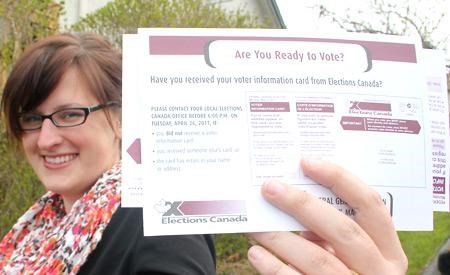@JackLaytons Mustache. Shitharperdid.com. People kicked out of political events for having photos on Facebook with the competition. Vote mobs. YouTube attack advertisements.
It’s hard right now to avoid hearing about social media and the election. The 2011 federal election is being touted by many as the “social media election,” as more political discussion and pandering makes its way into the culturally explosive world of social media. But what difference, if any, will the use of social media make? And will it help candidates connect to an audience that is becoming harder and harder to reach, the youth?
Fewer Canadians voted in the 2008 federal election than in any election since confederation and young voters under 24 were the most underrepresented citizens of those who did cast a ballot. In 2008, 58.8 per cent, or roughly 14 million of 24 million eligible voters cast a ballot, down from 64.7 per cent in 2006. Of voters from the age of 18 to 24 years, an estimated 37.4 per cent of those eligible voted, compared to 65.6 per cent of eligible voters between the ages of 55 and 64, according to statistics from the Library of Parliament.
So what’s the problem?
Jen Kennedy, a teacher in Powell River, is under 30, votes and believes that it is her civic responsibility to do so. She said the lack of political involvement from youth can be frustrating but believes that social media is influencing the way messages are delivered to young people. Through opinions and links people post on Facebook, Kennedy said there is a level of dialogue and information that would otherwise most likely never reach younger voters.
“At least it’s out there, at least there’s some dialogue around it as opposed to nothing,” said Kennedy. “It’s a platform that we, as the younger demographic...it’s something we’re familiar with and it’s something we’re comfortable with so I feel like that’s a positive thing.”
It’s a common conception that one way for candidates to reach out to young voters and light a political fire underneath them is to utilize social media. Politicians from the West Vancouver-Sunshine Coast-Sea to Sky Country riding are taking this to heart in a variety of ways. Incumbent Conservative John Weston, at the time of writing, has a Facebook page with 125 “likes” and has 213 followers on Twitter. New Democratic Party candidate Terry Platt has a Facebook page with 22 “likes” but no Twitter account. Green Party candidate Brennan Wauters has 31 “likes” on Facebook and 74 followers on his Twitter account.
Liberal candidate Dan Veniez is the most proficient of the local candidates. Veniez upkeeps his Facebook profile (2,935 friends as of writing), his Facebook page (44 “likes”) and his Twitter account (479 followers) himself and also writes a blog with The Vancouver Observer titled The Centrist. Despite the relatively active presence in social media, Veniez said he has a lot to learn and it remains to be seen what impact the use of social media has.
“You can’t really measure that,” said Veniez. “It’s a tool that’s never been there before that’s reaching out to an audience that I don’t believe has had the inclination to participate actively in the political process.”
David Bromley, Weston’s campaign manager, said he appreciates the speed social media allows information to be sent and receive replies. A website address typographical error on campaign signs aside, Weston’s campaign is trying to be tech savvy to better reach different groups, including young voters.
“The voter, certainly individuals, has a responsibility to give back more to the community than they take,” said Bromley. “Don’t throw away that vote. Get out and vote and hopefully they’re voting for us.”
Green Party candidate Brennan Wauters said he enjoys being able to record the “epiphanies” he has that otherwise often get lost in the jumble of the campaign. Social media allows Wauters the opportunity to fire off these ideas and thoughts and then let “them have their own life in the mediascape. In that sense that’s a very different dynamic than what would have pronounced a campaign at any previous time,” said Wauters. “It’s most certainly beneficial, as long as people pick up on it.”
Platt, a working candidate, said she doesn’t use much social media in her campaign for the primary reason that she simply doesn’t have the time. She said the new technology is astounding to her but that she still prefers face-to-face interaction. Despite this she does see it as a way to connect with youth, a group she believes needs to be listened to seriously and invited into the process.
“I think we should be paying a lot more attention to them, a lot more attention and not just giving it lip service,” said Platt. “They have ideas, and you know what? They have ideas that would work, that’s the thing. They’ve got workable, useable ideas and we’re not paying attention to them.”
Veniez too spoke of the importance of reaching out to young voters and earning their trust. He said he understands where they are coming from and that he himself has at times refrained from voting out of frustration with the political system. He doesn’t blame the youth for any apathy they might feel toward politics, he blames the political process itself.
“They are disengaged, they are disconnected, in part because of the political culture,” said Veniez. “The political culture itself is sometimes pretty depressing, it doesn’t appear to be terribly constructive. Lots of folks believe that politicians don’t deal with the fundamentals of pretty basic issues...rudimentary things that they’re expecting some serious conversation about and they’re not hearing it.”



